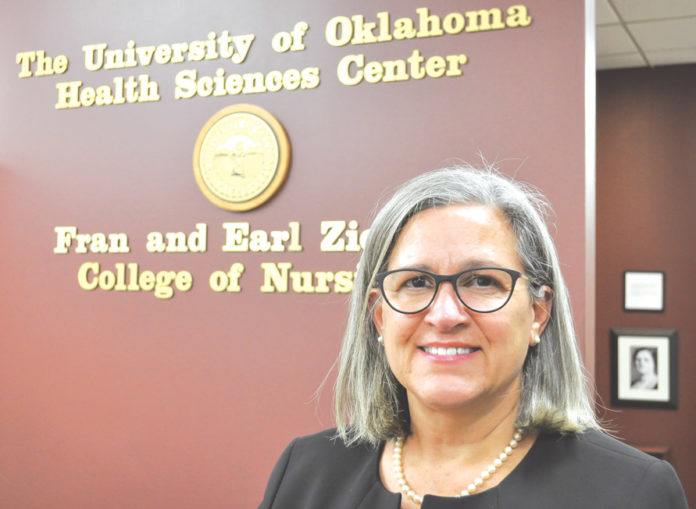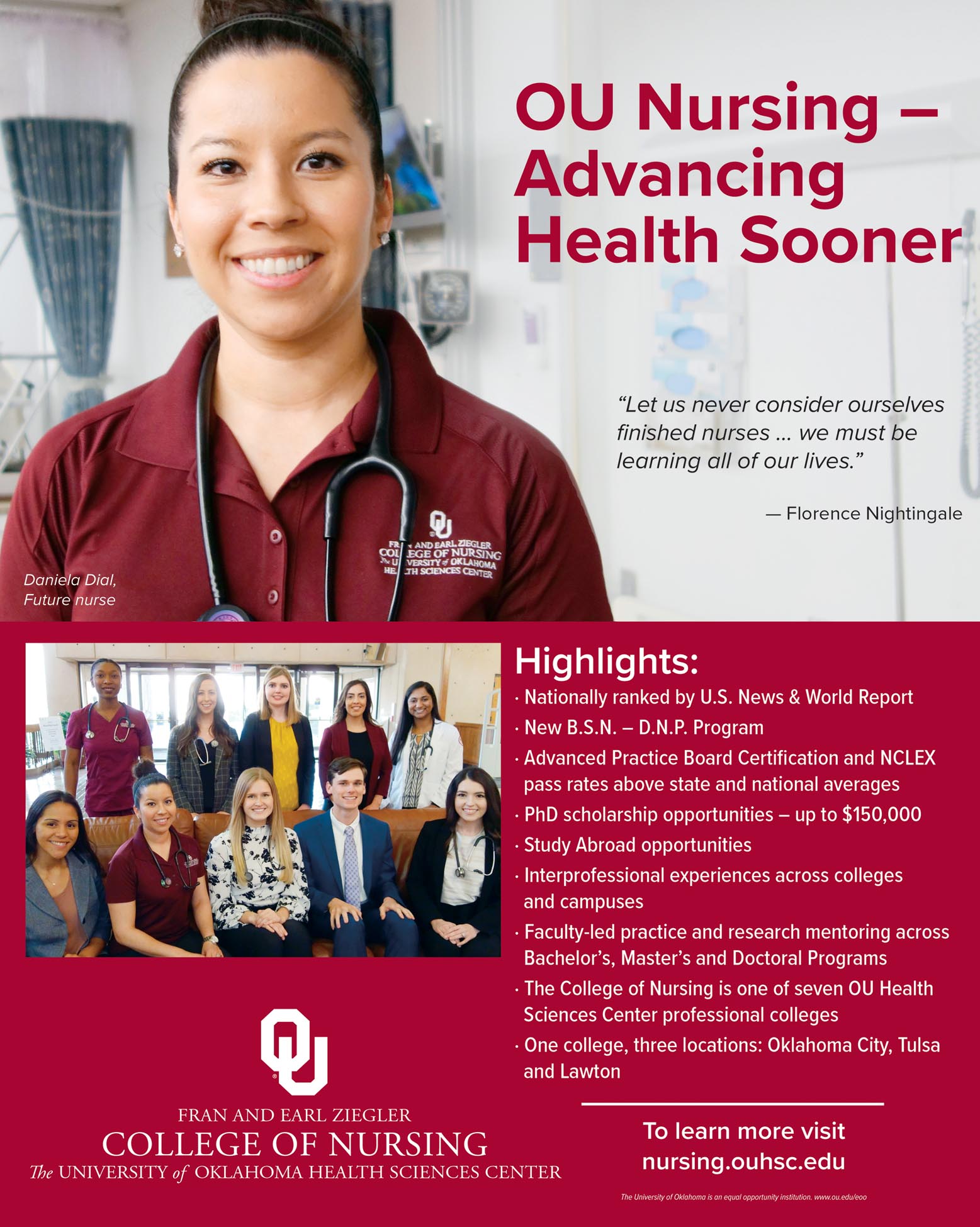
As part of the Oklahoma Medical Reserve Corps, Stress Response Team, Wanda Robinson, PhD, APRN-CNS, CNE is part of a team that responds to devastating events like tornadoes and wildfires.
She spent nearly a decade as a sexual assault nurse examiner.
Her clinical background is working with trauma victims.
Now, as an assistant professor at the OU, Fran and Earl Ziegler College of Nursing teaches psychiatric-mental health to tomorrow’s nurses.
As the global coronavirus pandemic continues and National Nurses Week and Year of the Nurse shines even more light on the profession, Robinson wants nurses to pay particular attention to taking care of themselves and how they are feeling.
And for many nurses caring for patients in crisis, Robinson says they need to be aware they may be exposed to emotional trauma each and every shift.
“This pandemic doesn’t follow the normal curve of a crisis as far as the trajectory and the impact,” Robinson said. “We don’t have the typical crisis event peak. This is prolonged exposure.”
The vast majority of trauma experiences are tied to a specific event.
There may be an unexpected tornado or wildfire that affects a community and its first responders.
However the impact is clearly tied to a specific event with a definable beginning and ending.
To date more than one million Americans have tested positive for COVID 19. The death toll has passed 60,000.
Each day more and more people die.
And as the country begins to re-open, most medical professionals realize that illness and loss due to pandemic will continue.
For many nurses, it’s an ongoing trauma with no end in site.
That’s why Robinson says its important to identify and validate what a person is feeling now and connect them with support.
“The impact nurses make in this situation is absolutely critical,” Robinson says. “We know that when working with the people in crisis situations, the support individuals receive in that immediate short term after an event has happened or when it’s happening makes all the difference in their ability to cope, feel supported and be able to move forward.”
Make no mistake, nurses are grieving.
“It’s normal to feel stressed and worried in a time of crisis,” Robinson said. “It helps to recognize these feelings including anxiety, frustration and anger that occur because we want the best outcomes for our patients. When we recognize these feelings, we can name them and accept these as expected emotions that may accompany loss.”
“While we are still strong for everyone else, being strong doesn’t mean we don’t need support too.”
“It’s OK to say I’m hurting and frustrated and get support.”
“Nurses’ are heroes and resilient people doing amazing and challenging work even while experiencing the emotions that come with crisis and trauma.”
Julie Anne Hoff, PhD, MPH, RN, as the dean of the OU Health Sciences Center Fran and Earl Ziegler College of Nursing.
She understands as we celebrate the Year of the Nurse, nurses everywhere are hurting.
“Health care organizations/systems must make the emotional and physical health of nurses a top organizational priority,” Hoff said. “During other epidemics, nurses reported the highest levels of occupational stress compared to other health care professionals. Nurses are on the frontlines for extended periods of time with increased numbers of high acuity patients. They fear they will become ill or worse yet bring the illness home.”
“They are confronting ethical and moral conflict on a daily basis.”
And as America begins to open up, Hoff reminds all nurses to remember what they are truly about.
“Remember, nurses are consistently rated as the most honest and ethical of all professions,” she said. “COVID has demonstrated the power of nursing. Each of you are superheros in your own right. Try to not get caught up in the politics of the situation.”
If you’re feeling stressed or need help coping Robinson said you can seek out help from the Disaster Distress Helpline, 1-800-985-5990 or text TalkWithUs to 66746.
You can also contact the National Alliance of Mental Illness at 1-800-950-NAMI (6264) as well as the National Suicide Prevention Lifeline at 800-273-TALK (8255).













